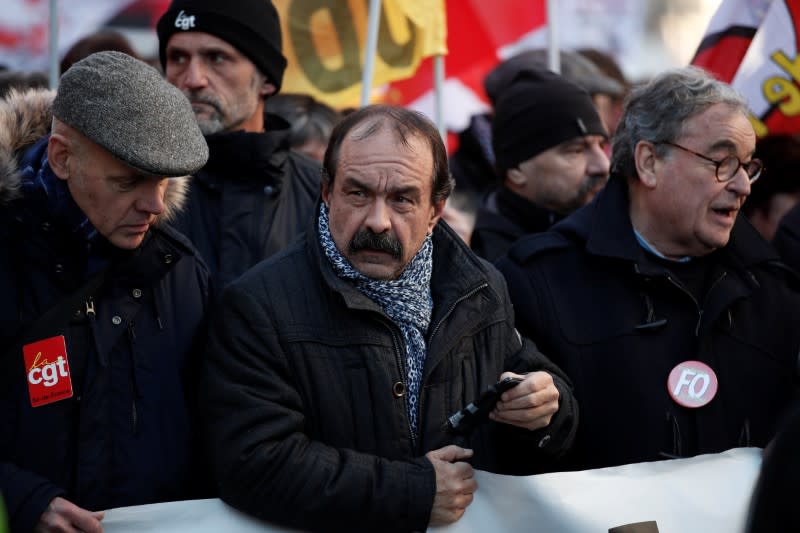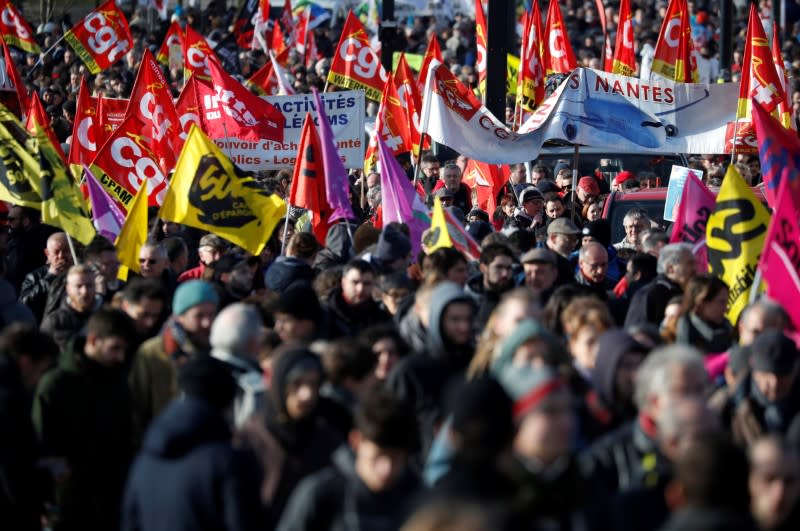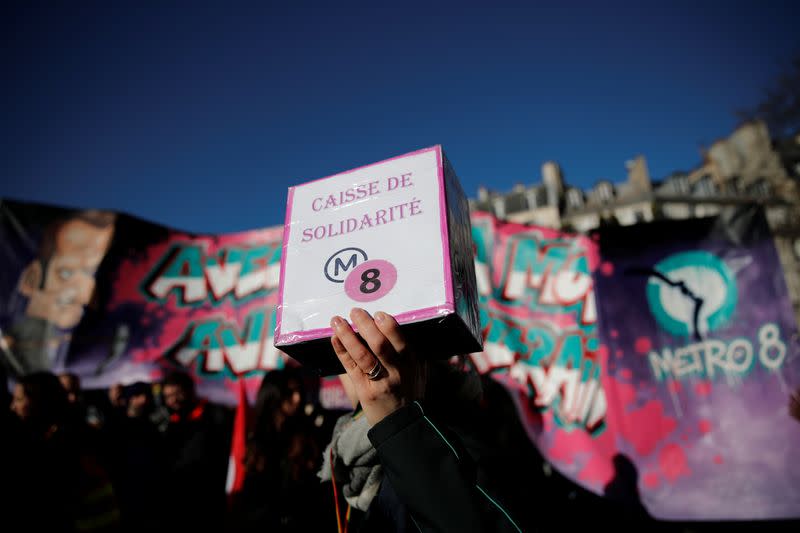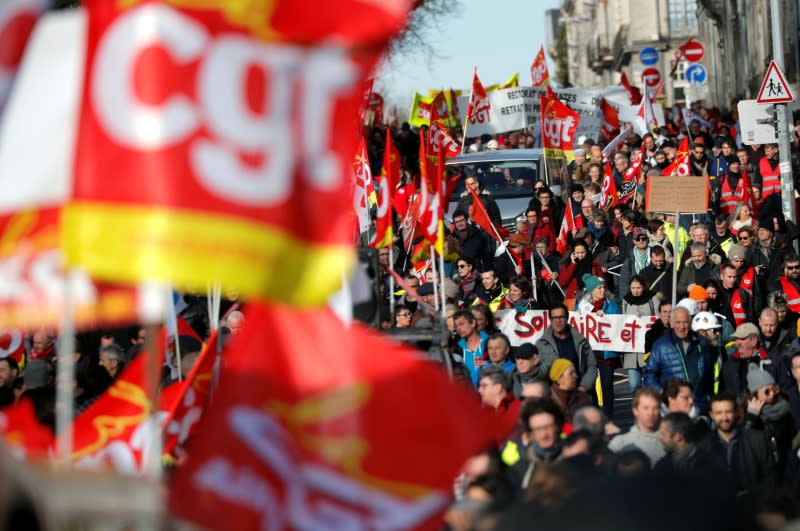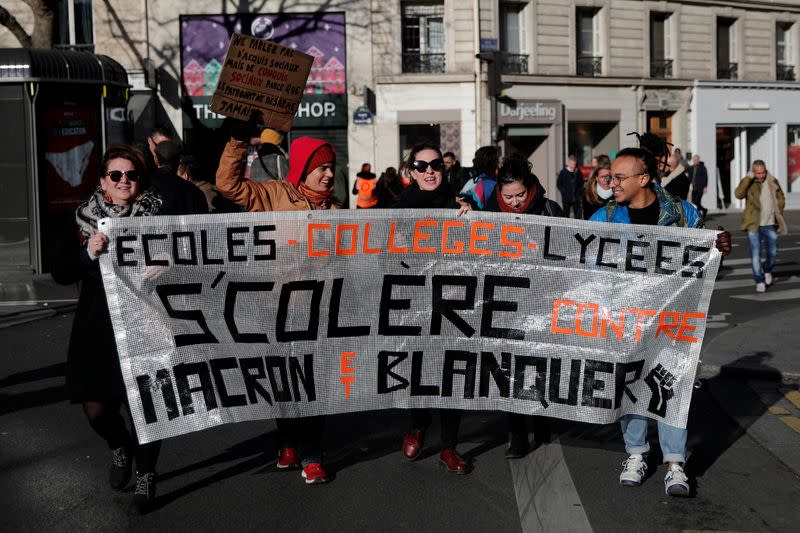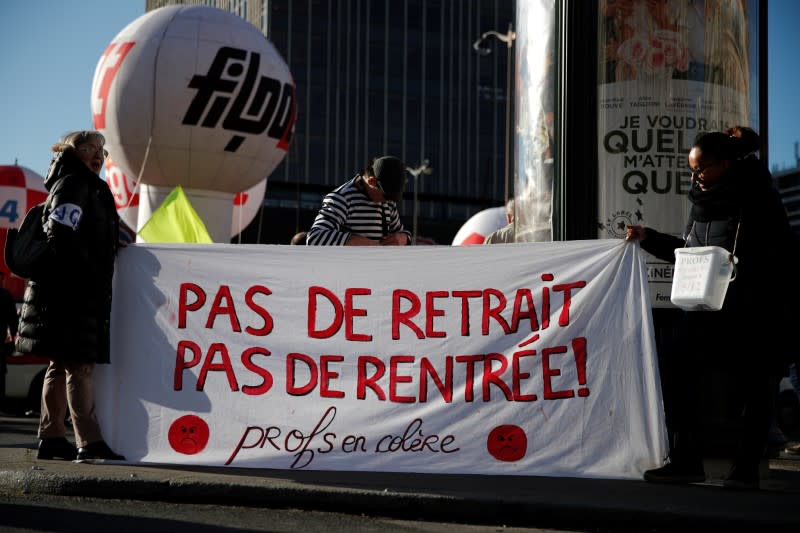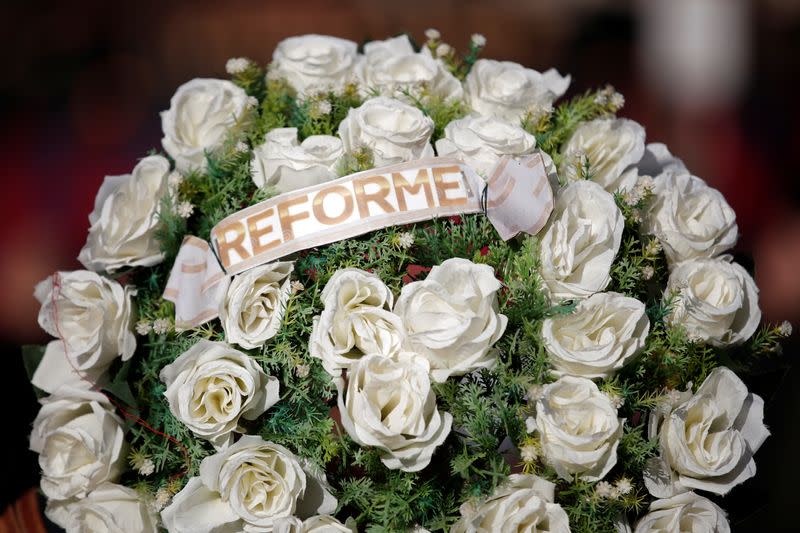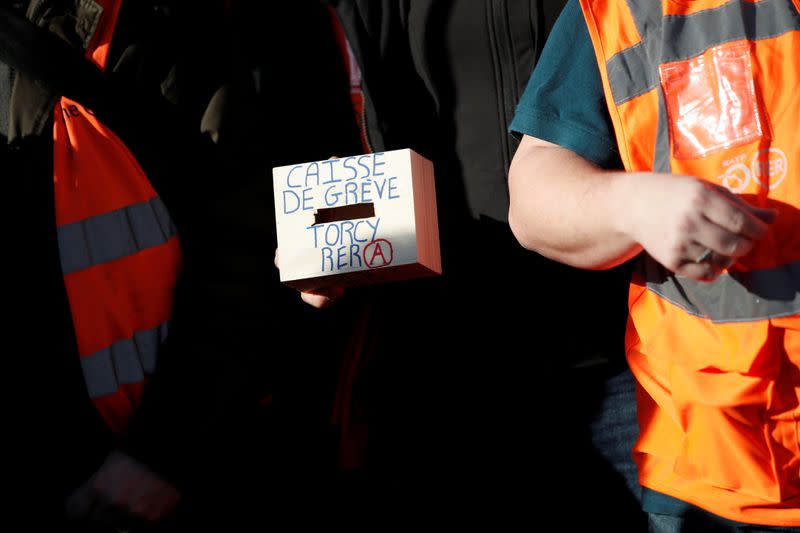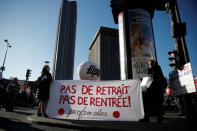French unions block ports as pension strikes lose steam
By Forrest Crellin
PARIS (Reuters) - French trade unions blocked ports and disrupted power production on Thursday, trying to force President Emmanuel Macron to ditch a planned pension overhaul, but turnout dropped again at protest marches and the impact of transport strikes weakened.
At a sixth nationwide protest demonstration organised by unions, the Interior Ministry tallied only 187,000 people marching nationwide, including 23,000 in Paris, compared to 452,000, including 56,000 in Paris, last week.
The first major anti-pension reform demonstrations on Dec. 5 had drawn more than 800,000 people nationwide.
The public sector strikes are now in their 43rd day but the industrial action has lost momentum since Macron's government made some concessions and as strikers face mounting financial pressure to return to work.
"We are entering a stage when some strikers have gone back to work because they were struggling financially. But we still have a large core group of strikers," Bertrand Dumont, a union member at public transport group RATP, told Reuters.
Only 10 percent of workers at state-run SNCF railways walked out on Thursday, compared with more than half when the strikes began on Dec. 5.
Public data collated by Reuters show the number of trains and metros operating has risen and strike observance has fallen.
But hardline union leaders reiterated that they would keep fighting until the government withdraws its pension reform.
DELAYS
With transport strikes flagging, unions turned to blocking the ports. Ferry services to Britain suffered delays and some 20 bulk carriers waiting to export cereals were kept at anchor outside France's major ports, data from financial data provider Refinitiv showed.
Electricity output was down by about 9% of available capacity.
On Saturday, Prime Minister Edouard Philippe offered to withdraw plans to raise the retirement age if the pension budget can be balanced another way, driving a wedge between hardline and reform-minded unions.
"In a democracy, everybody loses when confrontation continues," Roland Berger, leader of the moderate CFDT said on BFM TV.
Macron wants to streamline France's convoluted pension system and encourage people to stay in work longer. It would be the biggest overhaul of the system since World War Two and its success is key to Macron's credibility as a reformer and his chances of re-election in 2022.
An Elabe opinion poll for financial daily Les Echos showed the number of people who have confidence in Macron's policies rising a further two points to 32%, from 30% in December and 28% in November, before the start of the protest movement.
Graphic - Impact of France's rail and metro strike: https://fingfx.thomsonreuters.com/gfx/editorcharts/FRANCE-REFORM-PENSION/0H001QXTSB96/index.html
(Reporting by Forrest Crellin, Matthieu Protard, Sophie Louet and Lucien Libert; Writing by Richard Lough and Geert De Clercq; Editing by Timothy Heritage, William Maclean)

 Yahoo News
Yahoo News 

